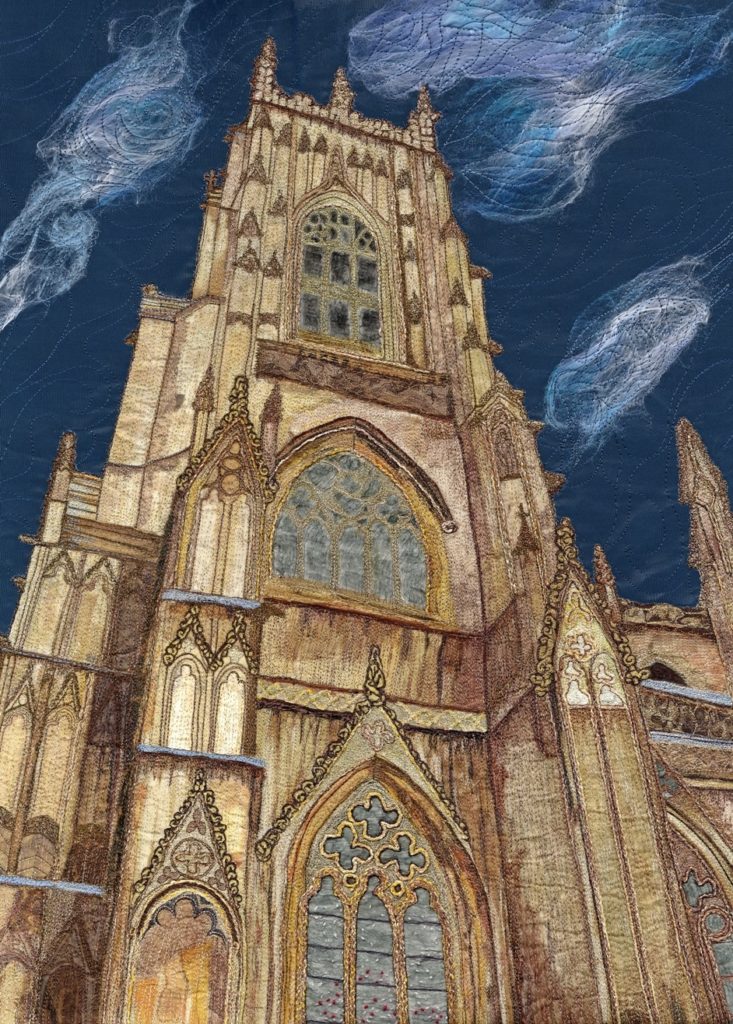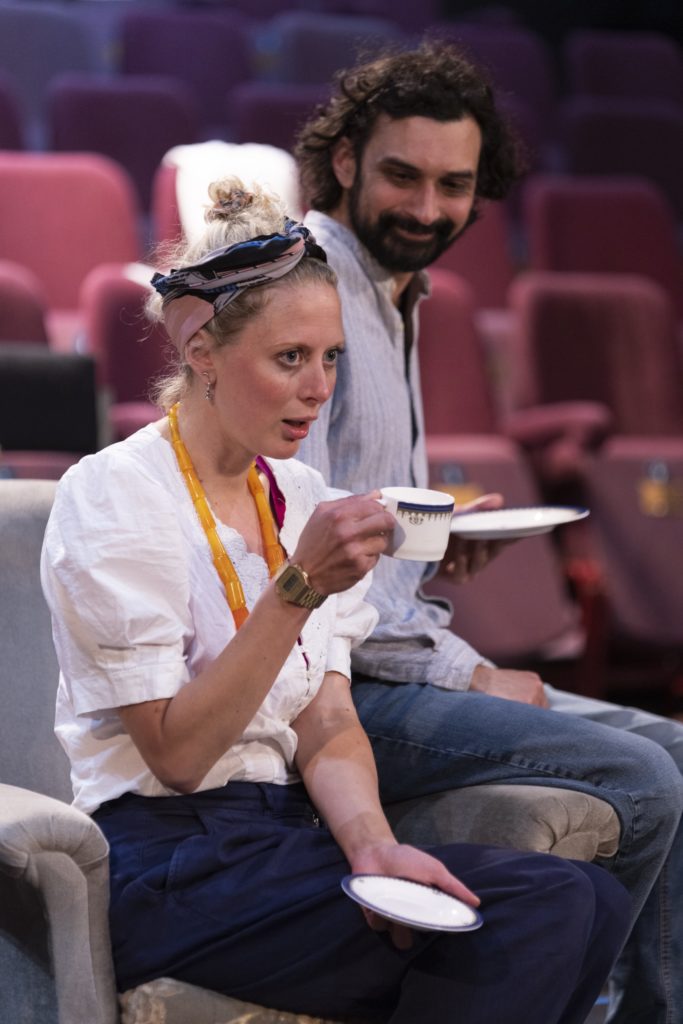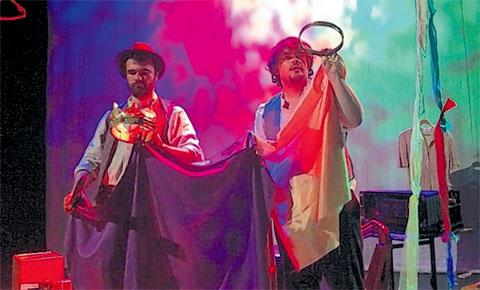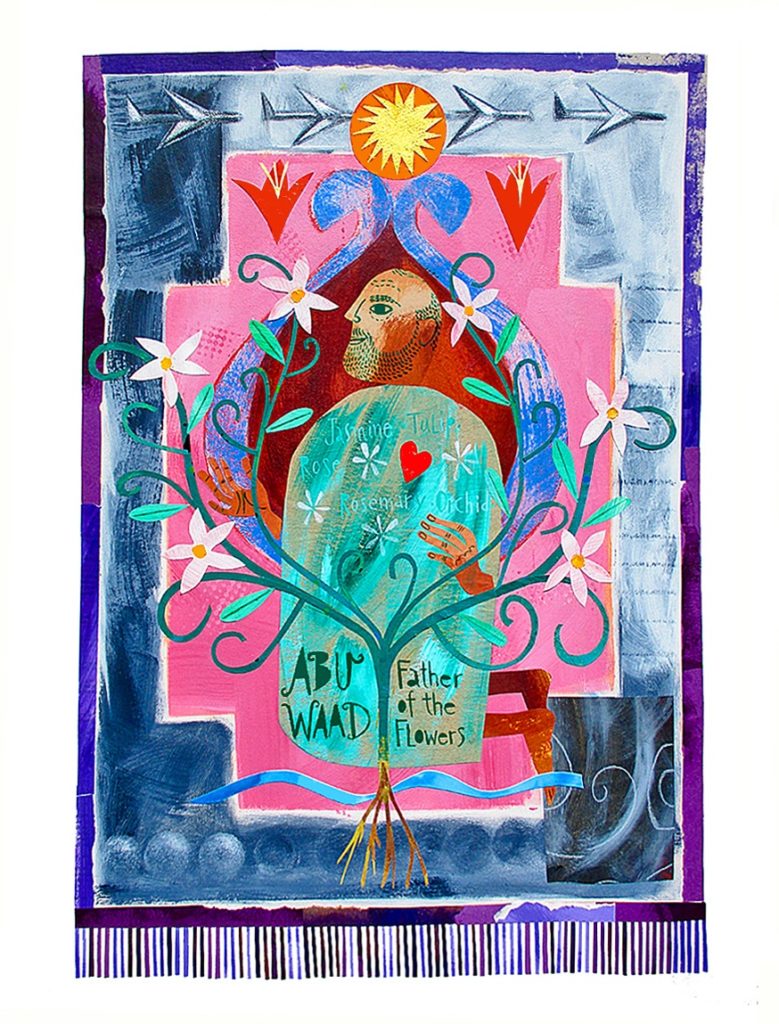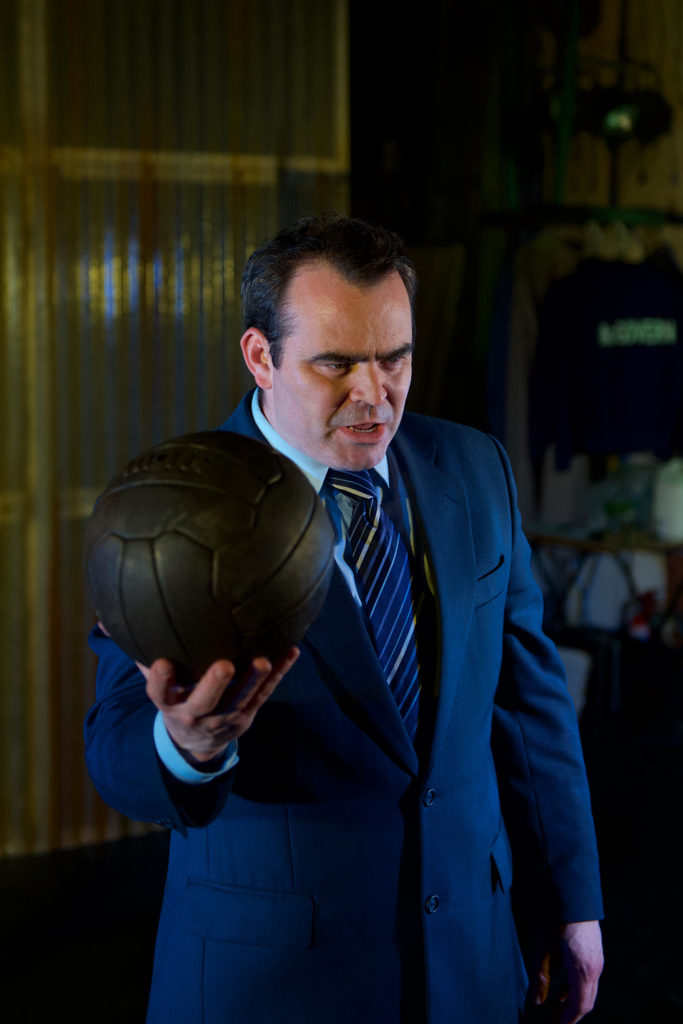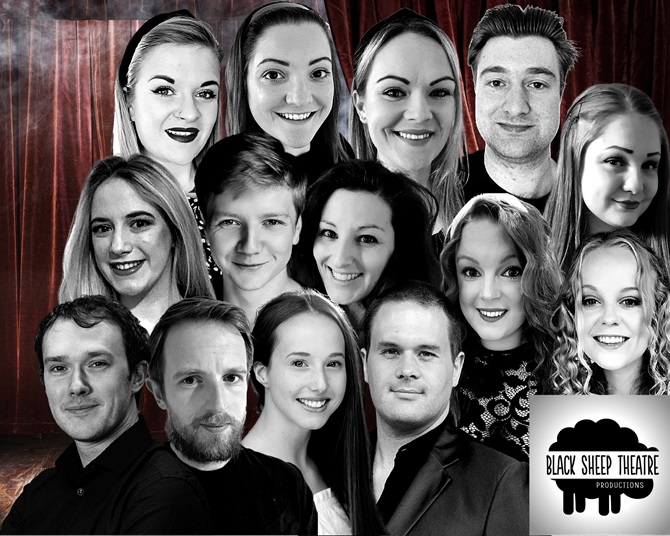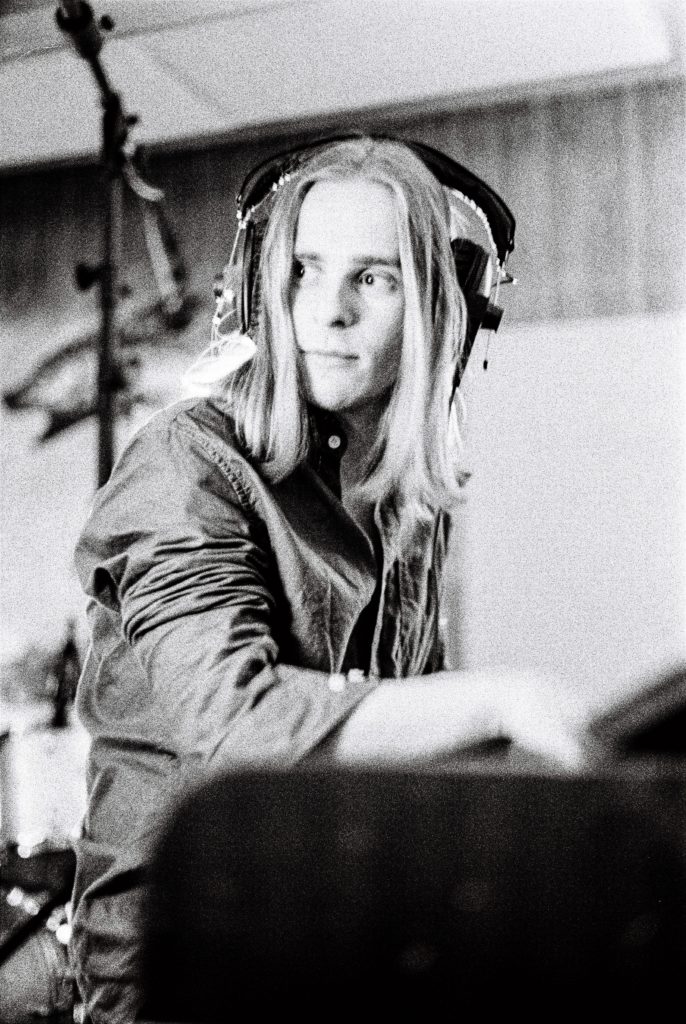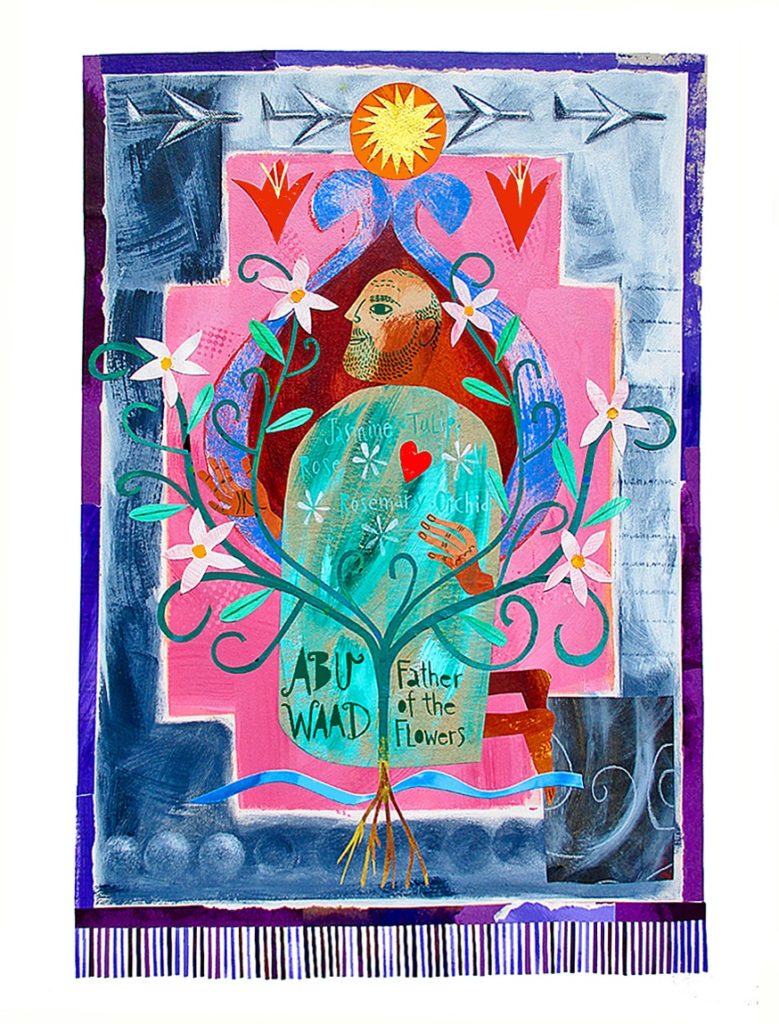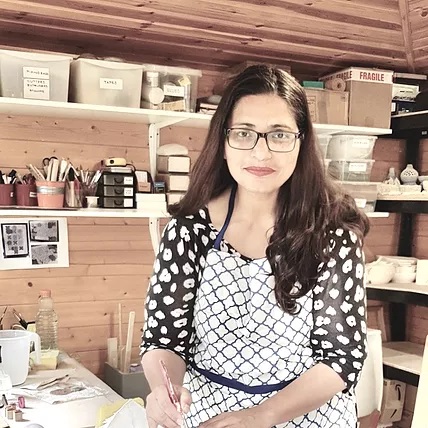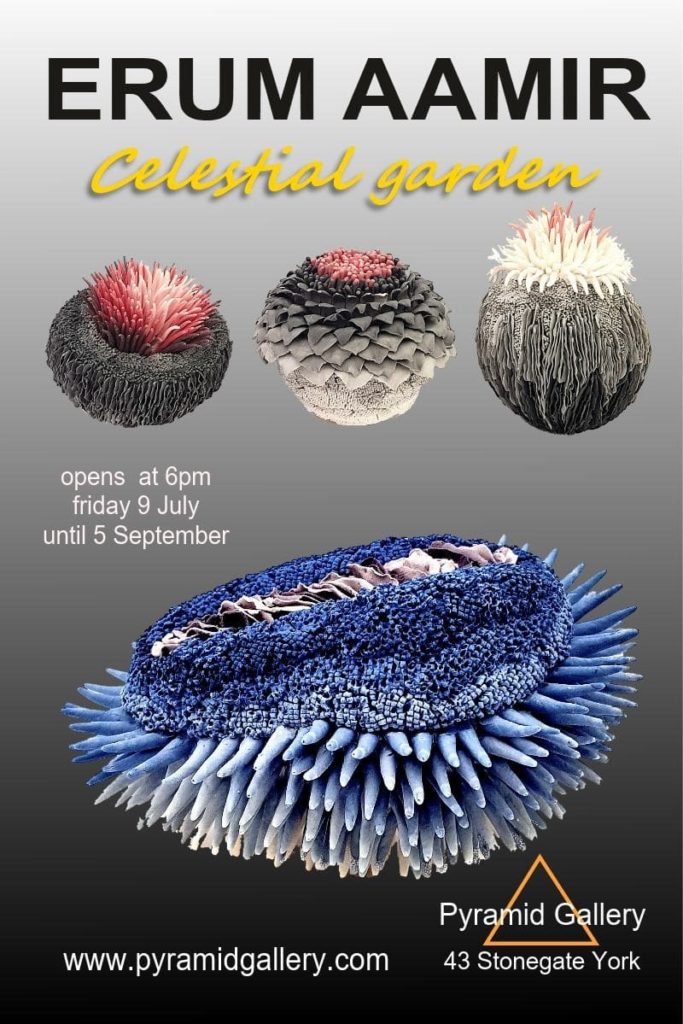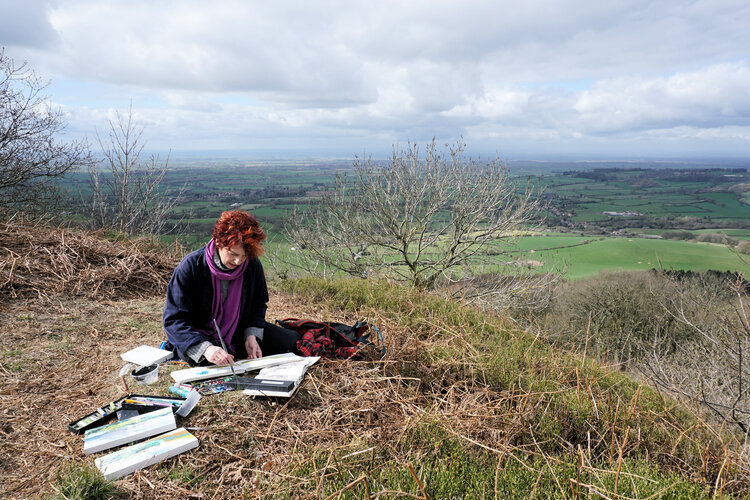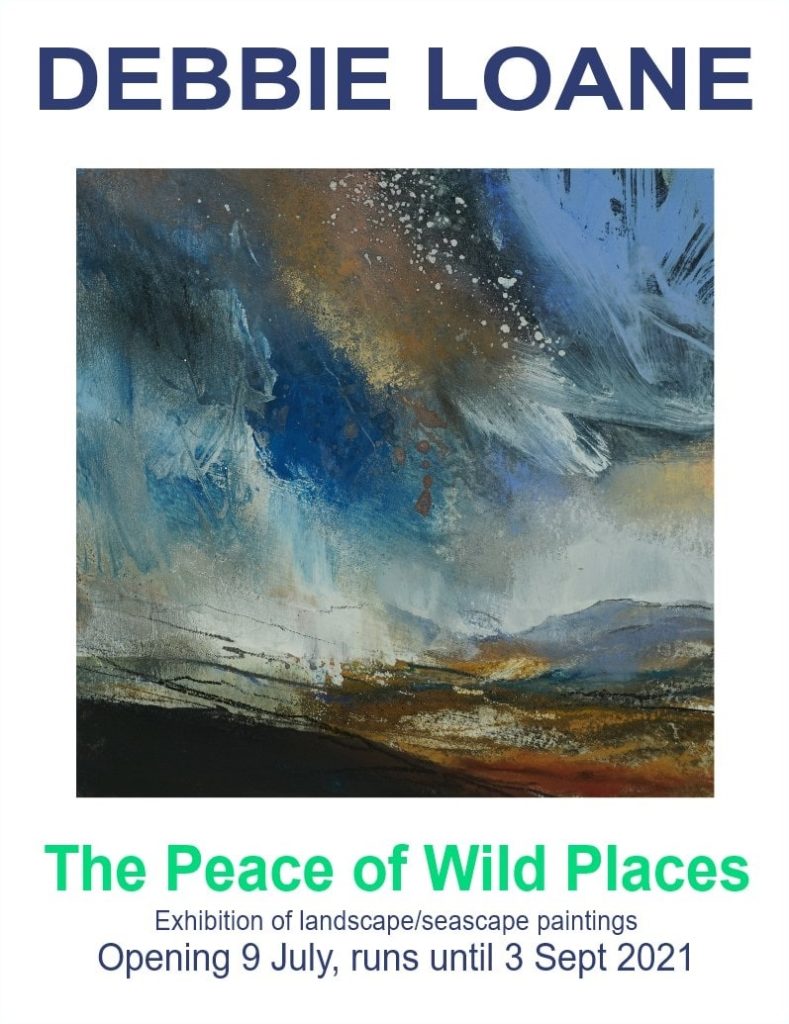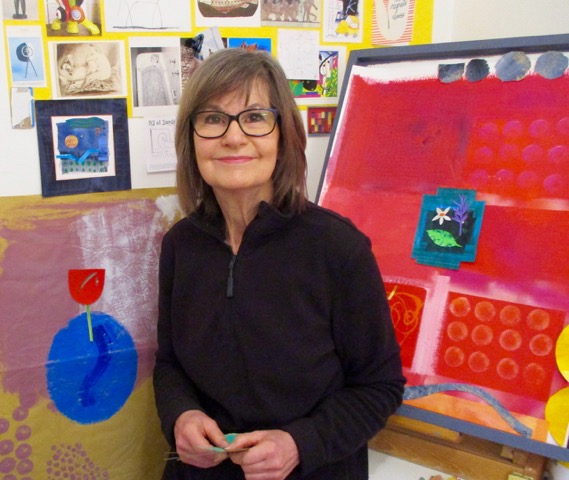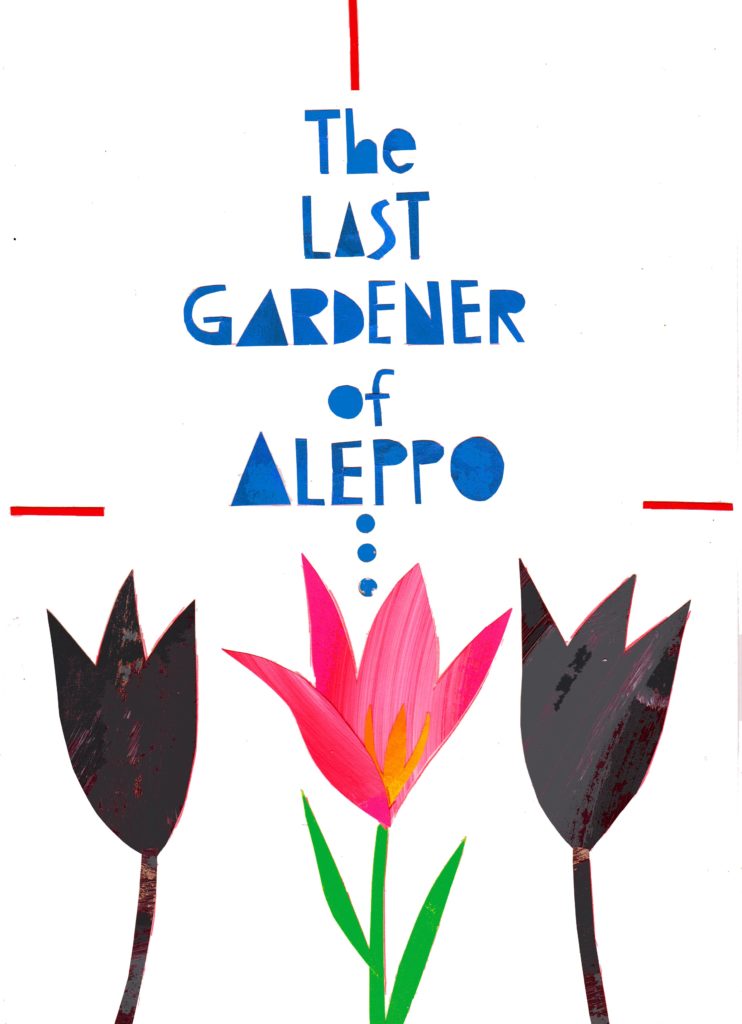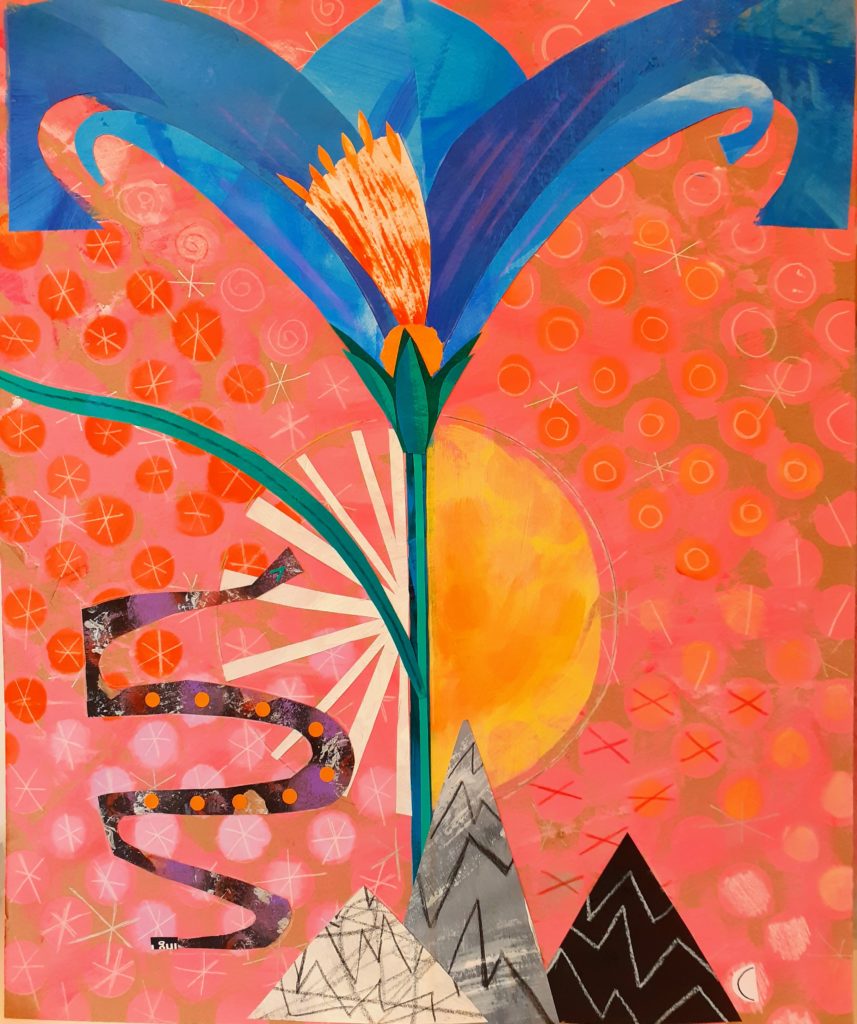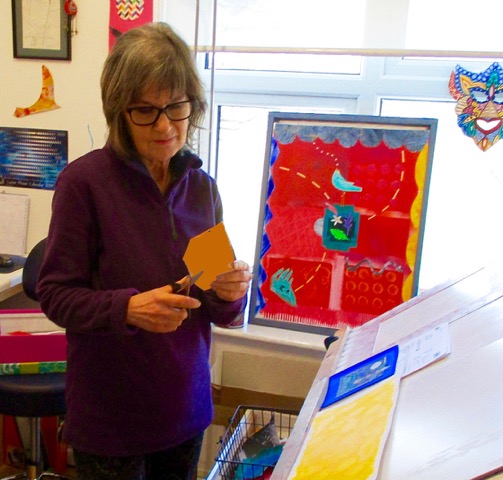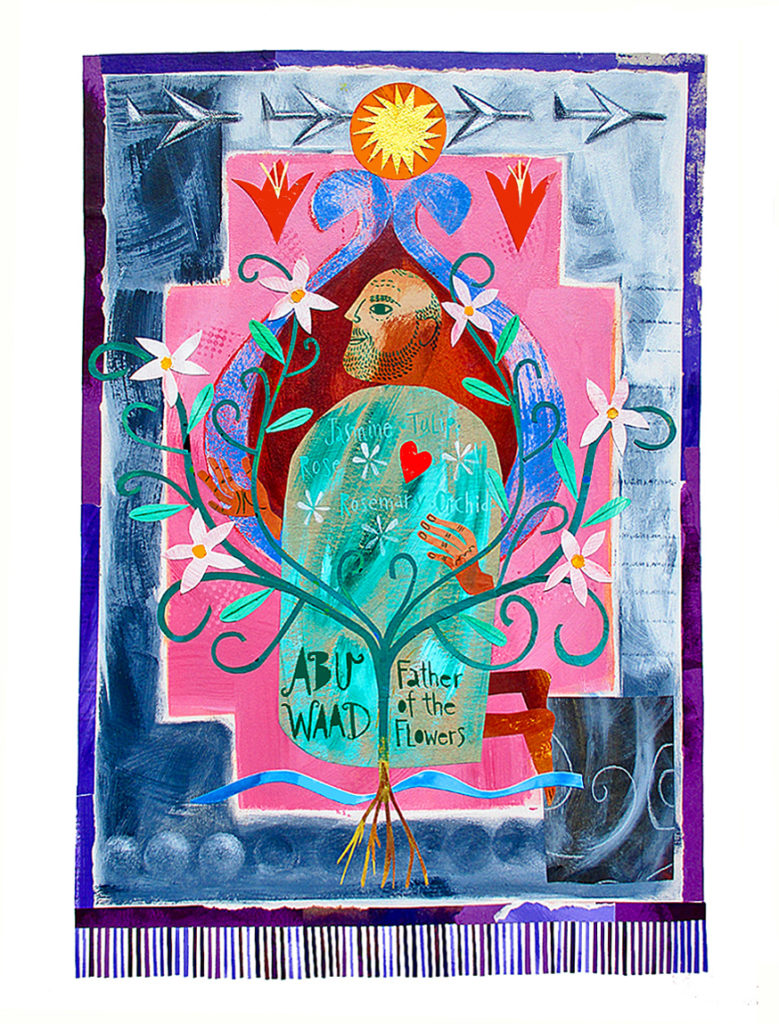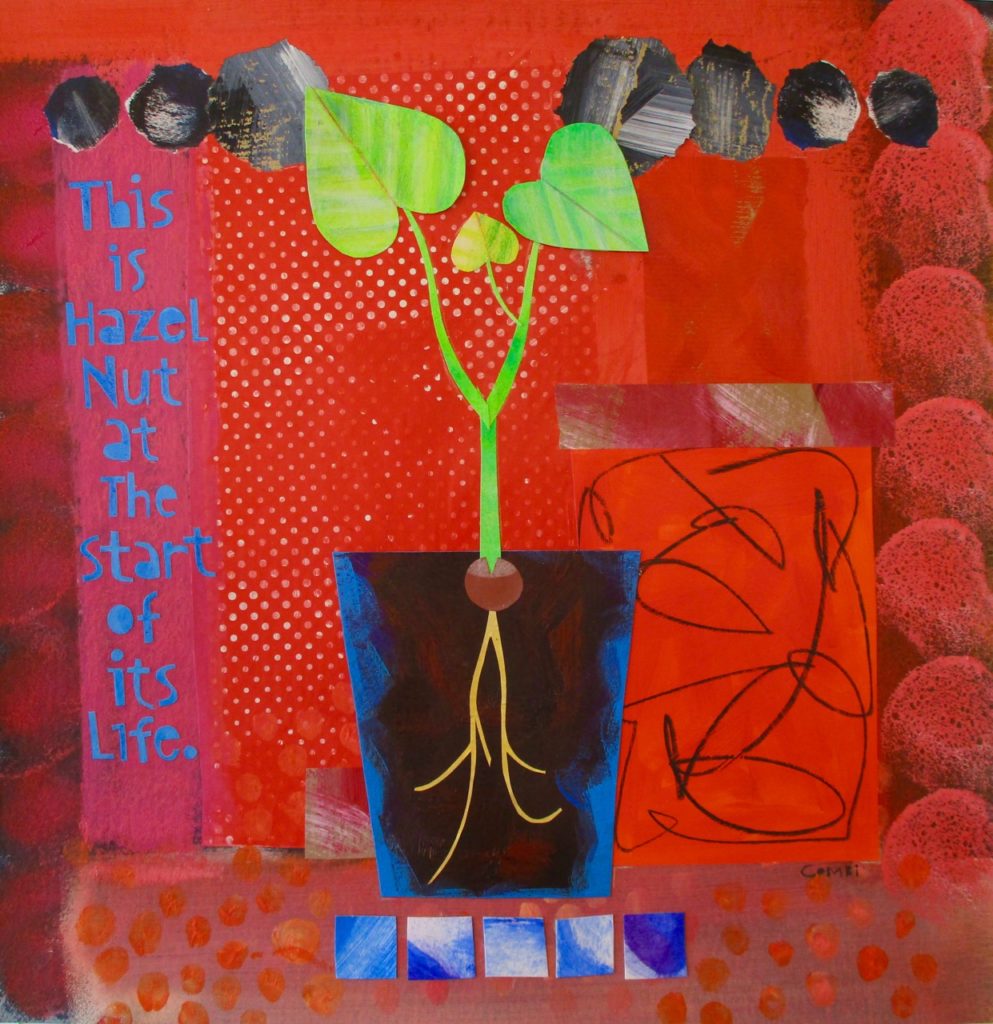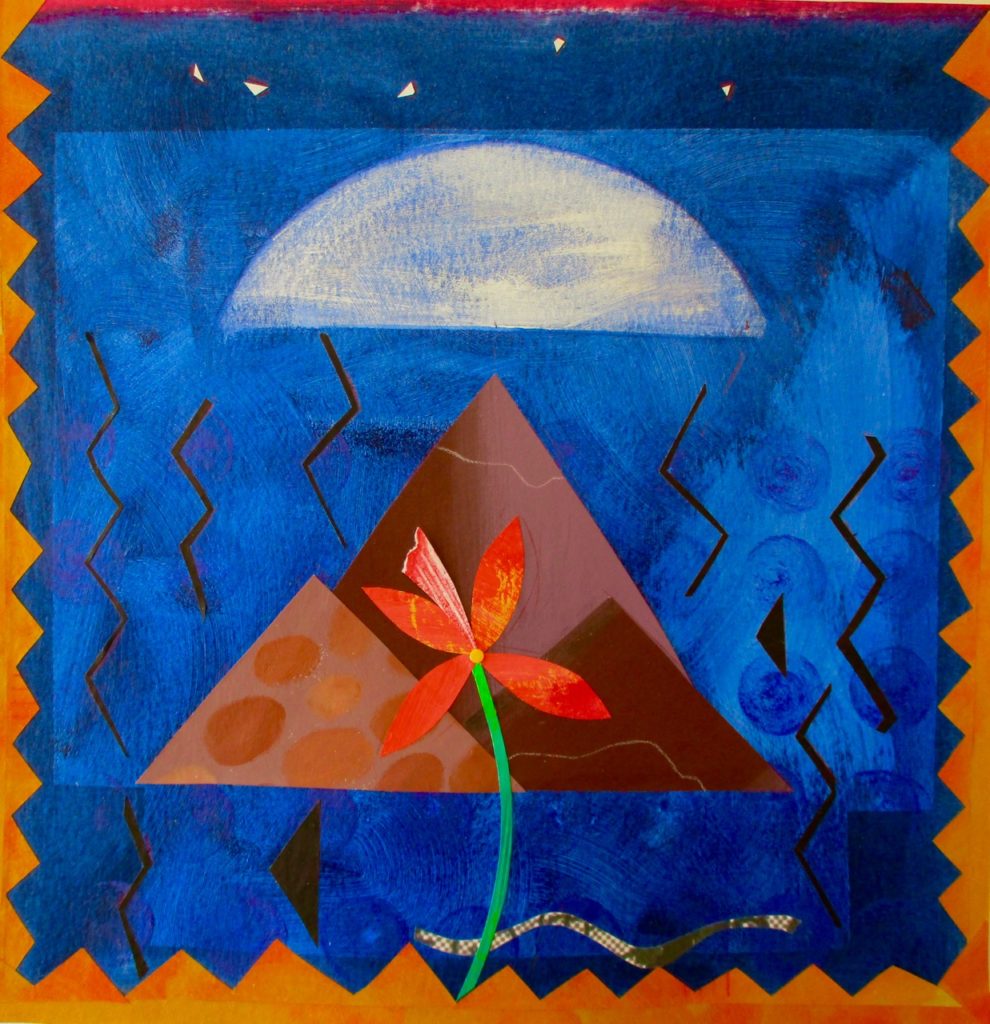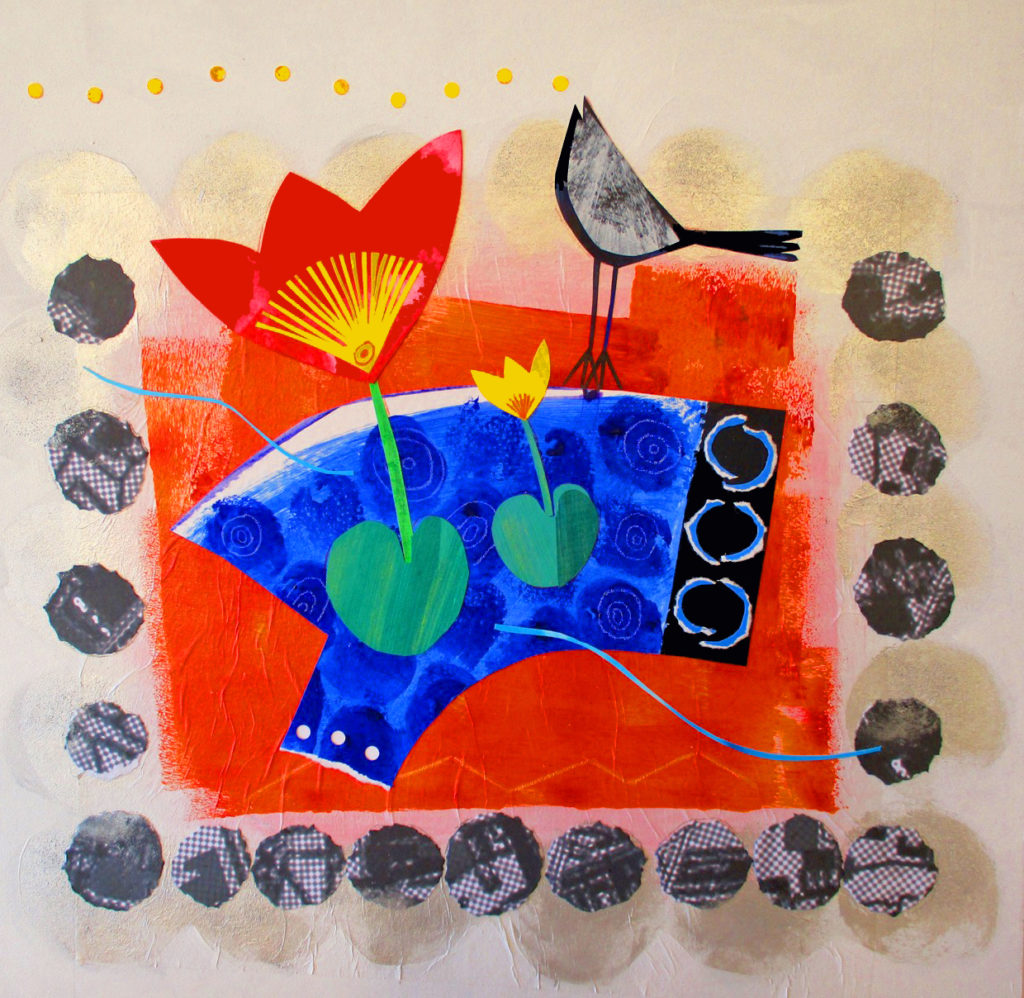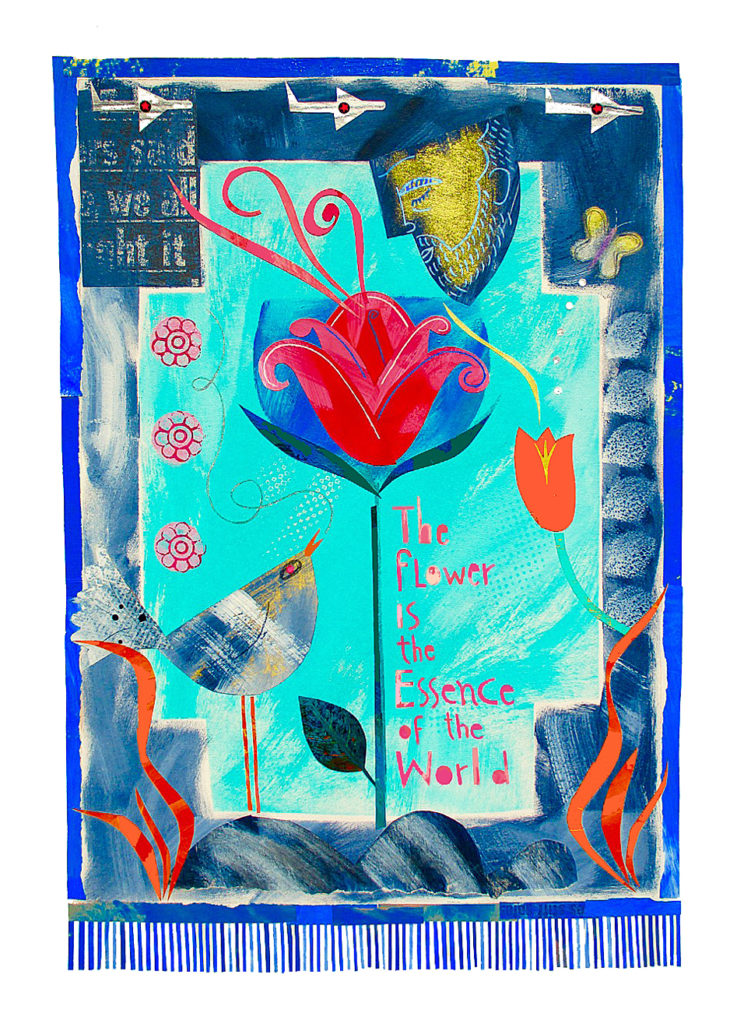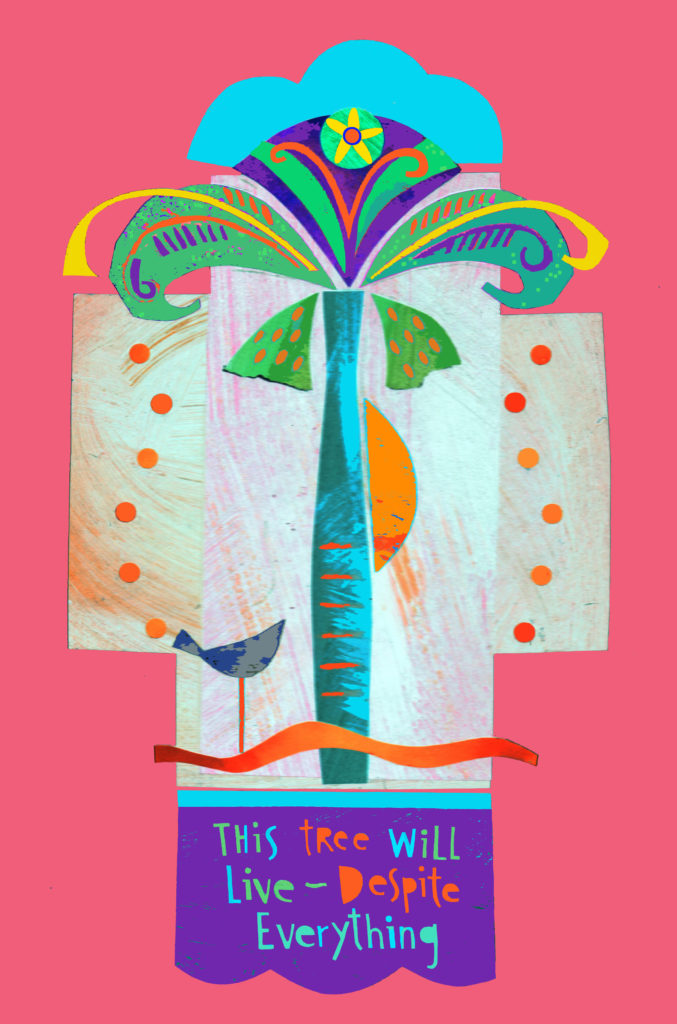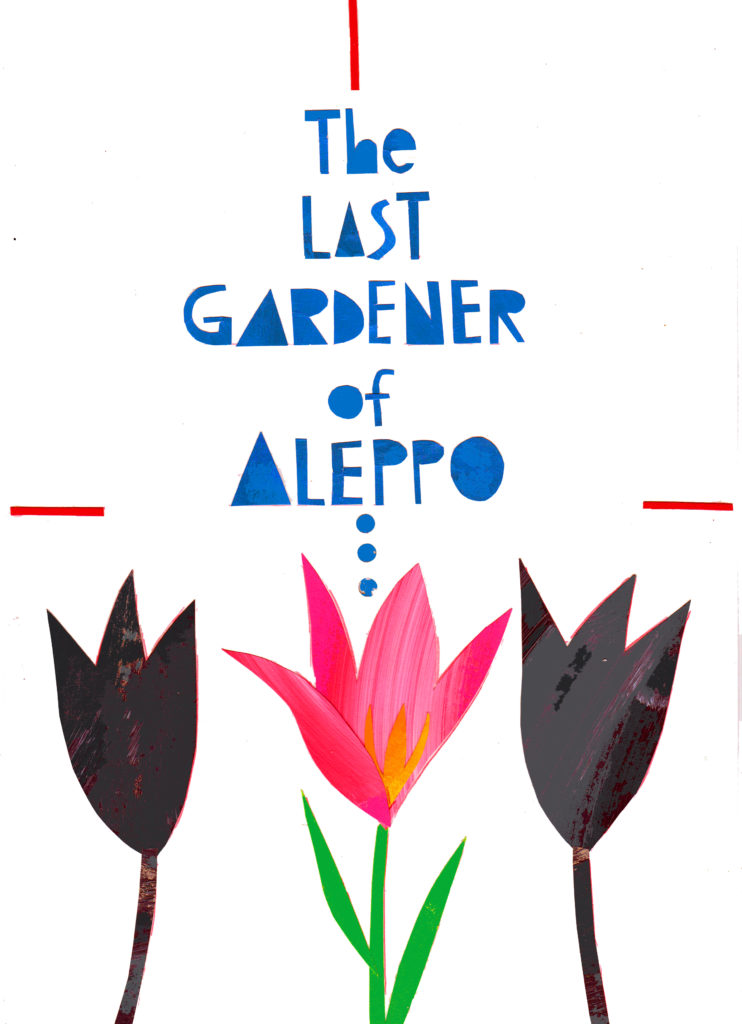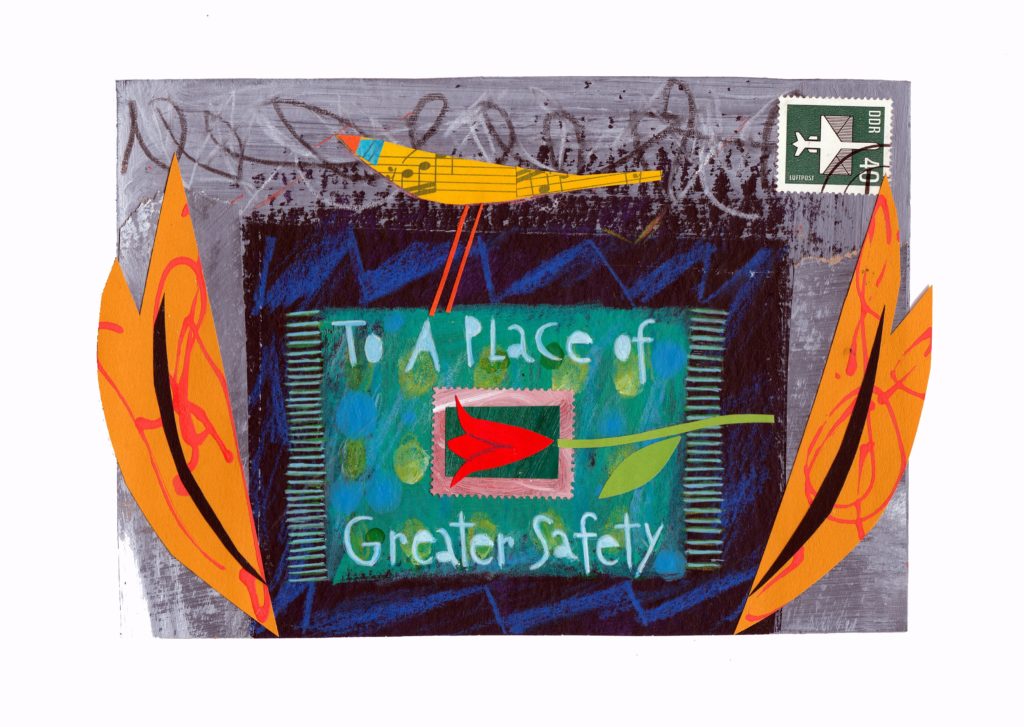
YORK artist and illustrator Linda Combi opens her new show, 52 Postcards, at Pyramid Gallery, Stonegate, York, on Saturday at 11am.
On show will be original framed collage paintings, print cards and booklets of all 52 paintings created by Californian-born Linda during 2023 around the theme of displacement.
Fifty per cent of sale proceeds in this charity project will be donated to UNHRC ([the United Nations High Commissioner for Refugees agency mandated to aid and protect refugees) and the Lemon Tree Trust, an organisation that works alongside displaced people to transform refugee camps through gardening.
“Everyone who supports refugees has that one moment that they can remember vividly – the moment when they realise that they can do something to improve the life of someone they have never met,” says Linda.
Her moment? “In 2016, I saw a news story on Channel 4 which was so emotionally charged that it changed my artwork,” says Linda. The subject of The Last Gardener Of Aleppo was Abu Waad, a Syrian gardener who ran a nursery in the heart of the besieged city of Aleppo, amid the daily bombs and missiles.
“He managed to grow and cultivate vibrant flowers, vegetables and other plants to sell to the locals, who badly needed growth and beauty in their lives, and was helped in the nursery by his then 13-year-old son Ibrahim,” says Linda.
“They had an incredible relationship, and he spoke so beautifully about plants: their beauty and resilience and the importance of them in our lives – stating that ‘the essence of the world is the flower’.”
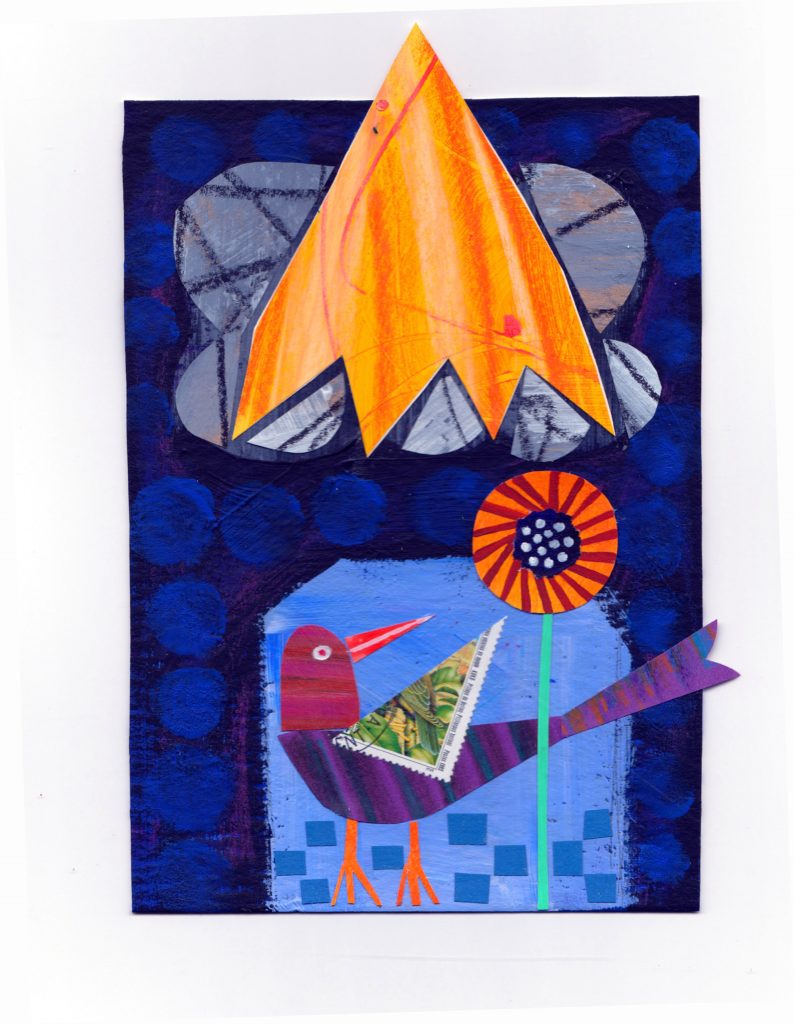
The story ended tragically: Abu Waad – whose name means ‘Father of the Flowers’ – was killed when a barrel bomb landed next to his plant nursery, the last frame depicting a desolate Ibrahim at his father’s grave.
“Abu Waad’s story touched me deeply – as it did for so many others,” says Linda, who responded to his words in her artwork, exhibiting original paintings, prints and greetings cards to aid the two charities in her The Last Gardener Of Aleppo exhibitions at Angel on The Green, in Bishopthorpe Road, in 2020 and Pyramid Gallery, Stonegate, York, in 2021.
“This was my starting point, but ever since 2016, I’ve continued to do work on the subjects of gardens and the natural world, aligning the images with the experiences of migrants and refugees’ lives, exploring beauty, safety, security, peace and – above all – hope.”
Now comes her latest project, 52 Postcards, inspired by her reflections on displacement. “It’s a project related to the ‘Gardener’ work,” says Linda. “I’ve chosen the postcard format because they symbolise travellers on holiday touching base with family and friends back home.
“But for refugees, they can have very different connotations. It’s grounded in the concept of refugees being in another place, writing a letter to home or to their former self. My postcards are poignant ‘messages’ about displacement, longing, fear and finding home.”
She chose the theme of “oasis” to capture the desire for security, growth, and beauty. “This theme embodied Abu Waad’s story,” says Linda. “Despite the great danger and destruction all around, just like Abu Waad, refugees too can have their own oasis or sanctuary.
“The other aspect is that my happiest childhood memories are from my time in a date palm oasis in the desert of California, so there is a direct connection to my once home too.”
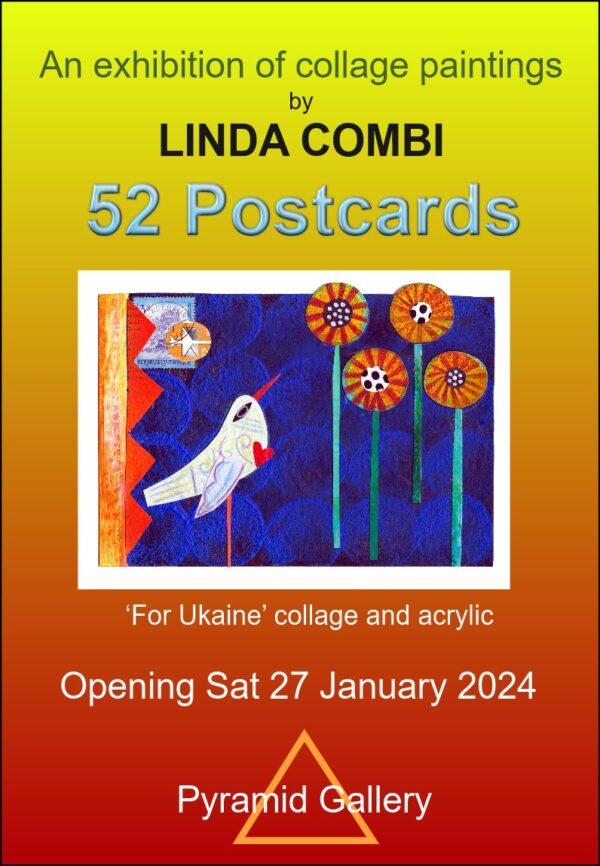
Originally, Linda planned to make 50 postcards, but she then realised that most of the designs depicted plants and seasons, and 52 cards could reflect the calendar year.
Many of her postcards depict birds as a symbol for people forced to flee. “They’re innocent, and they’re on the move, both fragile and, in the case of migratory birds, very resilient,” says Linda. “I’ve often used postage stamps for making birds, butterflies, moths and flowers in order to express the transitory nature of their lives.
“My favourite postcards feature the birds, including A Place Of Greater Safety, which features a magic carpet and is grounded in the idea of a dream where you can escape danger and uncertainty, with the magic carpet taking you away to a new peaceful security.”
Linda’s images are inspired by news stories, films, music and books, as well as her own significant experiences. “My grandparents left Sicily for a ‘better’ life in America; a courageous journey into uncertainty,” she says. “I’ve seen ‘The Fence’, which divides Mexico and California, and spoken with border guards there. I also spent time in Israel, where I experienced a divided society at close range.
“As climate change is integral to the migration story, I’ve touched upon weather and changing environments. And, of course, war is at the heart of too many of the images.”
Linda’s postcards are mixed media, primarily hand-painted collage papers but also incorporating coloured pencil, pen, stickers, crayon and printed ephemera. The printed cards measure 5” X 7” including a white border; the original images are also 5” X 7” and are consequently larger, and each will be framed using colours appropriate to each design.
“Refugees and other displaced people have to endure so much,” says Linda. “Everyone should support refugees – not only do they enrich society, but more than anything, it’s just basic kindness and human empathy to understand how frightening it must be to be to have to flee.”
Linda Combi: the back story
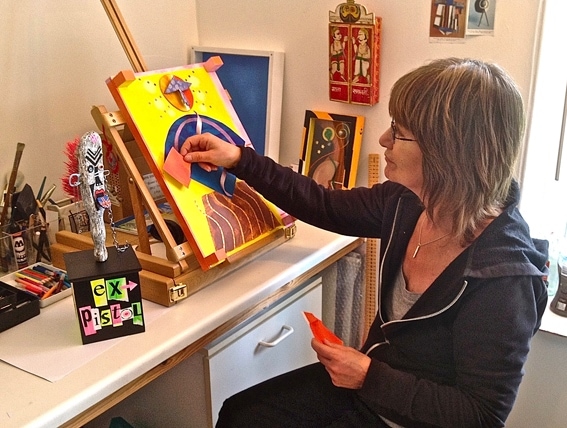
BORN in San Francisco, California, Linda was drawn to Europe in a quest for art and romance. Lives in York.
Has worked as an illustrator for many years, being asked to produce work on many subjects, including her adopted county of Yorkshire.
Her humorous illustrations have appeared in the Observer Magazine, The Times, Independent On Sunday, Tatler and Sainsbury’s Magazine, as well as in illustration exhibitions.
Continues to exhibit work in a range of media, from graphic collages to 3D assemblages.
Regards laughter as an essential ingredient for survival in today’s world, believing that humour can burst pomposity and undermine prejudice. This has led gentle mockery and angry satire appearing in her work, such as The Brits series, exploring traditions and eccentricities she has observed, from the love of gardening, cricket and pantomime to pub crawls and dog walking.
Since returned to more personal projects, taking time to experiment with materials and imagery.
Participated in four York Open Studios events; exhibited at Pyramid Gallery, Angel on the Green and Blossom Street Gallery in York, Zillah Bell Gallery in Thirsk and Pocklington Arts Centre.
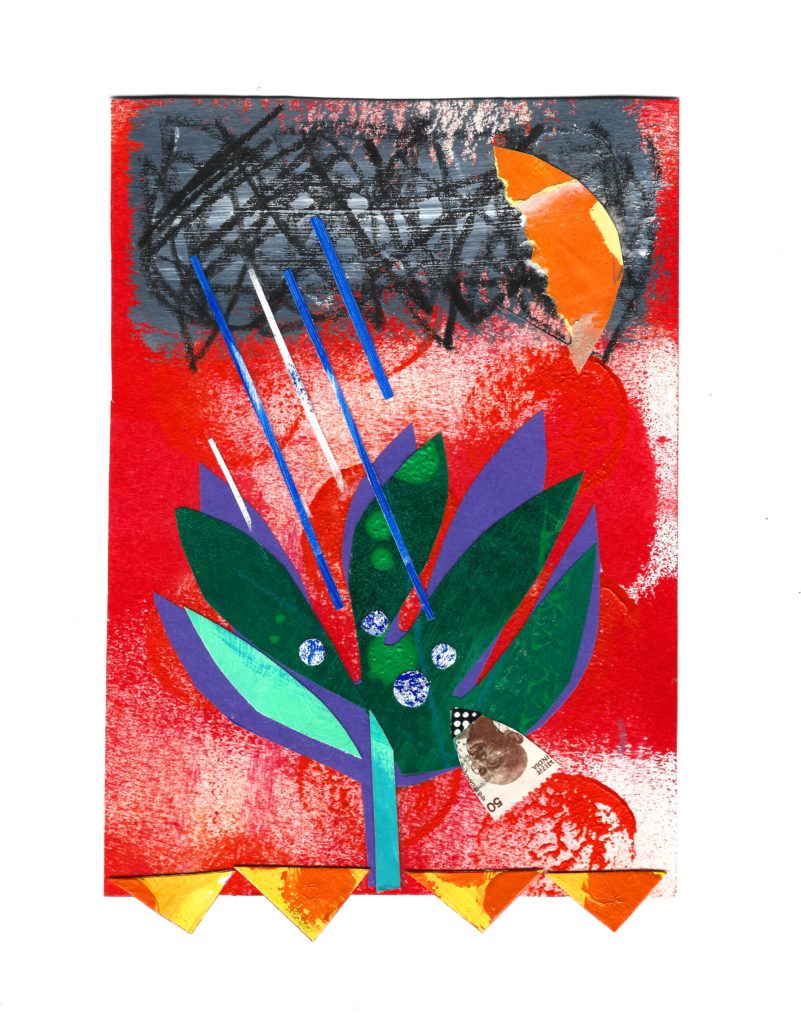
Took part in Fetes du Graphisme in Paris and York Design Festival in 2020.
New works are being added yearly to ongoing charity project The Last Gardener of Aleppo, inspired by Channel 4 news story from 2016. Proceeds of sales have been donated to the Lemon Tree Trust and UNHCR.
Worked with York’s Good Organisation, designing T-shirts on the theme of homelessness and with Refugee Action York for teaching materials. Helping charities through her work has become increasingly important to Linda.
Art inspiration comes from people-watching, ethnic art, music, travels, news stories, children’s art and literature.
When not making artwork, Linda enjoys cinema, reading, watching cricket and tennis, swimming, travelling and playing the ukulele “quite badly”.
Linda Combi’s 52 Postcards exhibition runs at Pyramid Gallery, Stonegate, York, January 27 to March 9; opening hours, Monday to Friday, 10am to 5pm; Saturdays, 10am to 5.30pm. The project can be viewed at Linda’s website, lindacombi.biz, from where purchases can be made too.

